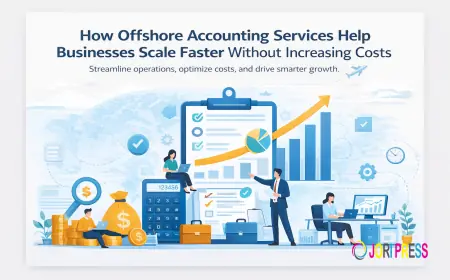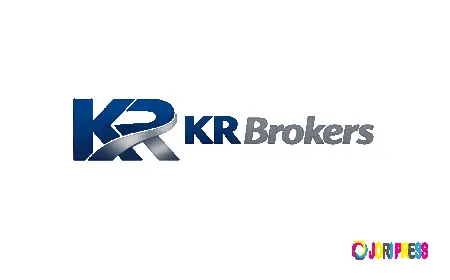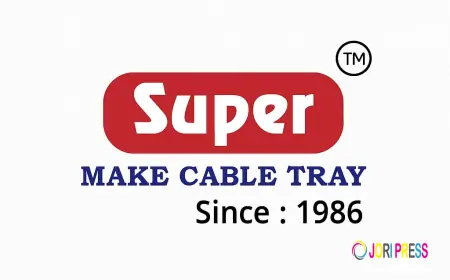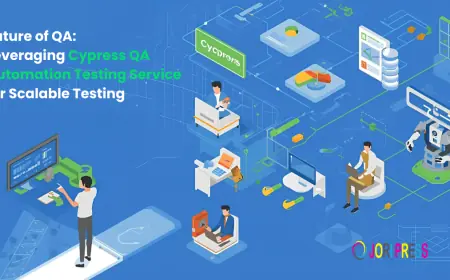Real Estate CRM Development: Features That Drive Conversions
A well-designed CRM tailored for real estate can be the ultimate game-changer—streamlining operations, improving client relationships, and ultimately, boosting conversions.
In the fast-paced world of real estate, leads come and go in the blink of an eye. The difference between closing a deal and losing a potential client often boils down to how well a real estate professional manages their contacts, follows up, and responds to client needs. That’s where a real estate CRM (Customer Relationship Management) system steps in.
A well-designed CRM tailored for real estate can be the ultimate game-changer—streamlining operations, improving client relationships, and ultimately, boosting conversions. But not all CRMs are created equal. To truly make an impact, a real estate CRM must go beyond basic contact management.
Let’s explore the key features that actually move the needle and drive real results in real estate.
1. Lead Management That Doesn’t Let Opportunities Slip
In real estate, timing is everything. A CRM should offer smart lead capturing from various sources—website inquiries, property listing portals, social media ads, and more. Once leads are in the system, automatic tagging, categorization, and prioritization ensure agents know who to contact, when, and why.
Smart reminders and lead scoring help agents focus on high-potential prospects without letting any opportunity fall through the cracks.
2. Automated Follow-Ups and Email Campaigns
Most buyers and sellers don’t convert after the first interaction. Consistent communication is key, and automation makes this manageable.
With built-in email and SMS automation, real estate CRMs can send follow-up messages, property alerts, or personalized greetings at the right time—without manual input. This keeps leads warm and shows potential clients that you're attentive and professional, even when you're juggling multiple deals.
3. Property Matching and Alerts
One of the most powerful features of a real estate CRM is property matching. The system should allow agents to match client preferences (like location, budget, and type of property) with available listings.
Even better, the CRM can send automated alerts to clients when a new listing matches their preferences. This not only saves time but also creates a great client experience—keeping them engaged and interested.
4. Centralized Communication Hub
When calls, emails, and texts are scattered across different platforms, it’s easy to lose track. A CRM that integrates all communication in one place gives agents a full history of client interactions. This context allows for more meaningful, personalized conversations that build trust.
With real-time notifications and notes, agents can stay up-to-date and never miss a beat.
5. Mobile Accessibility
Real estate agents are rarely tied to a desk. Whether showing homes, attending meetings, or hosting open houses, mobility is key.
A CRM with a robust mobile app gives agents full access to leads, listings, and client information on the go. From scheduling showings to updating lead status, the ability to manage tasks in real-time is crucial for productivity—and conversions.
6. Analytics and Performance Insights
Data is power. A good CRM provides actionable insights into agent performance, lead sources, follow-up success rates, and campaign effectiveness. These analytics help real estate businesses refine their strategy, double down on what’s working, and improve what’s not.
By tracking metrics like response time, conversion rates, and pipeline status, you can make smarter, data-backed decisions.
7. Integration with Other Tools
Your CRM shouldn’t live in a silo. Seamless integration with tools like MLS systems, email marketing platforms, accounting software, and even virtual tour apps enhances productivity and reduces manual work.
When everything works together, agents can spend less time managing tools—and more time closing deals.
8. User-Friendly Interface and Customization
Let’s face it: even the best features won’t matter if your team hates using the software. A CRM should be intuitive and easy to navigate, even for non-tech-savvy users.
Plus, the ability to customize dashboards, workflows, and fields means the system can be tailored to your specific processes, whether you’re a solo agent or managing a large brokerage.
Why It All Matters: Conversions
All these features boil down to one goal: conversions. A well-built real estate CRM doesn’t just organize contacts—it nurtures relationships, reduces missed opportunities, and helps agents focus their time where it counts most.
In today’s competitive market, personalized, prompt, and persistent communication is what sets top-performing agents apart. The right CRM doesn’t just support this—it empowers it.
Final Thoughts
Investing in a tailored real estate CRM is no longer optional—it’s essential. With the right features in place, a CRM becomes more than just software; it becomes the backbone of your sales process, a silent partner that helps you close more deals, faster.
Whether you’re a seasoned agent or just starting out, partnering with a reliable CRM Software Development Company that focuses on features driving real conversions will give you a measurable edge in a crowded market.
What's Your Reaction?
 Like
0
Like
0
 Dislike
0
Dislike
0
 Love
0
Love
0
 Funny
0
Funny
0
 Angry
0
Angry
0
 Sad
0
Sad
0
 Wow
0
Wow
0


















































